Key takeaways from the EU Open Source Policy Summit 2024

On February 2, 2024, the 10th Open Source Policy Summit took place in Brussels, under the theme Europe in the World of Open Source. Do not worry if you missed the event – our CEO, Dr Monique Calisti was there to discuss with several of the NGI Commons partners about our engagement with policymakers and open source communities, bringing back some key insights.
From the very first session, open source was presented as the new go to solution. The keynote speakers, Astor Nummelin Carlberg, Executive Director of Open Forum Europe, Amandeep Singh Gill, the Secretary General’s Envoy on Technology, and Bernando Mariano Junior, Chief Information and Technology Officer of the Office of Information and Communications Technology at United Nations all stated that open source could be the new engine of the EU’s economy, providing means to help solve some of the major societal, economic, and environmental challenges and contribute to achieving the global sustainable development goals.
How this will happen still requires more work from different actors. The alignment at international level is needed as many challenges arise when it comes to governance and sustainability of open source efforts.
Global development and the bridging of the digital divide were the topics covered in the first panel, Europe in the World of Open Source, where the main focus was on the Global South and the need to ensure that its people are not left behind during the digital transformation. The discussions on how to build and maintain open digital infrastructures as the basis of providing benefits to all citizens, led to an important announcement by David Manset, Senior Project Coordinator at ITU-T.
An important joint initiative by the ITU, the UNDP, and the European Commission called Open Source Ecosystem Enabler (#OSEE) was announced. This initiative aims to build digital capacity thanks to open source by focusing on enhancing the capacity of local and regional public and private actors to adopt open source solutions for delivering digital public services.
The spotlight then shifted to Europe, particularly the EU, as the Committee of Permanent Representatives was in the process of voting on the new AI Act, which has since been approved. During discussions about open source AI, a dichotomy emerged between a European-centric and a global approach to open source. Recognizing AI as the next economic powerhouse, the EU aims to capitalise on this potential, with trustworthy and secure AI and IoT at the core of developments in several sectors, such as the automotive industry, as highlighted by Max Lemke, the Head of Unit of IoT at DG CNECT, EC. It was also suggested that open source solutions should be mandated in all public procurement processes. To further promote open source, Karen Melchior MEP suggested the possibility to start discussions on a European Open Source Act.
Open source was also praised as an essential choice to ensure Europe’s digital sovereignty, also raising attention to the Cyber Resilience Act (CRA), aimed at enhancing the security of products with digital elements, currently waiting to be approved by the European Parliament. Although initially criticised for potentially impeding the open source community and the EU economy, the Act now also recognises open source as an economic driver. Despite there still being some points of the CRA which raise concerns, Lorena Boix Alonso, the Director for Digital Society, Trust and Cybersecurity at DG CNECT, EC, noted that the Delegated Act should provide more clarity on how to comply with the Regulation.
In terms of cybersecurity, Fiona Krankenbürger, Co-Founder of the Sovereign Tech Fund, called for more focus on small developers who are at the heart of the diverse open source community, thus prioritising community building as crucial for nurturing the open source ecosystem, which is one of the main ambitions for Martel across several initiatives we are playing an important role in, such as the Next Generation Internet and the EUCloudEdgeIoT initiatives.
But after all, it all comes down to financial capacity, which will be needed to ensure the sustainability of open source initiatives and solutions. The last session of the event focused very much on what kind of strategy needs to be set in place to boost public and private investments for open source. The NGI is a clear success story as in the last five years more than 1000 open-source projects have been funded. On the other hand, the size of the investments at European but also at national level must significantly scale up for Europe to stay competitive on the global tech scene.
To sum up, Open Source Policy is in the “coming of age” phase, and it must be taken into account, yet a lot remains to be done. We can certainly look forward to the future of Open Source Policy, and on our side, we will play an active role in the pan-European landscape guiding the recently launched NGI Commons project.
 Horizon Europe
Horizon Europe


